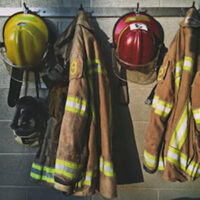New York Appeals Court Allows 9/11 Workers’ Compensation Claim To Proceed

Many people were affected by the 9/11 terrorist attacks in New York. Just under 3,000 people were killed in the attacks, with many others suffering from toxic exposure caused by being in the area. In fact, nearly 10,000 first responders from 9/11 now have cancer.
A New York state trooper filed a workers’ compensation claim after suffering esophagus damage from his work after the 9/11 attacks. Initially, the New York Workers’ Compensation Board denied the man’s claim, stating that his actions did not qualify him for any benefits. That has now changed, with a New York appeals court allowing the claim to proceed.
The trooper filed a workers’ compensation claim after suffering from gastroesophageal reflux disease. He developed the disease after working at a traffic control checkpoint, located a mile away from the World Trade Center. He worked at the checkpoint from January 31 to February 6, 2002.
However, the state workers’ compensation board denied the claim, alleging that the state trooper did not qualify as a participant in the World Trade Center rescue efforts. The board found that the man’s health conditions did not meet the guidelines of an occupational disease. It claimed that the man’s health issues were not caused by the nature of his employment, but rather as an environmental condition specific to his workplace. The board also found the claim timely and ultimately denied it.
The state trooper, however, appealed the claim. He testified that his duties at the checkpoint were related to the World Trade Center rescue and cleanup. He explained that he would stop traffic and clear routes for construction crews and emergency vehicles traveling to and from the World Trade Center. He also assisted in getting construction vehicles, fire department personnel, and family members past the checkpoint.
The five judges on the panel agreed with the state trooper, unanimously ruling that the man’s work duties at the time were connected to the rescue, recovery, and cleanup operations at Ground Zero. The initial decision was reversed.
Why Did So Many People Get Sick After 9/11?
When people think of the victims of 9/11, they think of those in the airplane or buildings at the time of the attack. However, many first responders developed illnesses months after the attack. After the attack took place, building materials, furniture, and electronic equipment were destroyed. This caused dust to fill the air over the World Trade Center site for many months after the incident. This caused those nearby to suffer from various respiratory illnesses, such as gastroesophageal reflux disease (GERD), asthma, rhinosinusitis, sleep apnea, chronic obstructive pulmonary disease, and even cancer.
Contact Us for More Information About Workers’ Compensation Benefits
Many people underestimate the health issues that first responders have suffered due to exposure to the World Trade Center. Many people close to the site have suffered from various respiratory illnesses as well as emotional trauma from the incident.
Workers who were forced to work near the 9/11 attack site should be eligible to receive compensation for health issues. If your claim has been denied, get help from White Plains workers’ compensation lawyer Michael Lawrence Varon. To schedule a free consultation, fill out the online form or call (914) 228-1770.
Resources:
businessinsurance.com/article/20210618/NEWS08/912342623/State-trooper%E2%80%99s-injuries-in-911-cleanup-compensable-Twin-Towers-ground-zero-
mountsinai.org/about/newsroom/2018/deaths-from-911-diseases-will-soon-outnumber-those-lost-on-that-fateful-day
